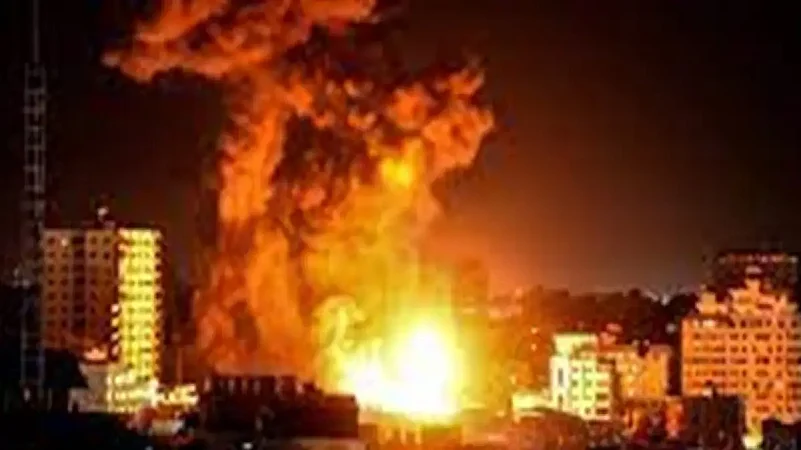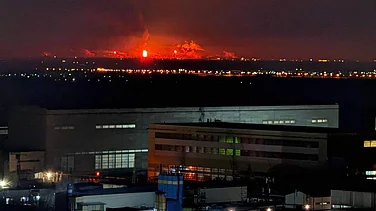Israel said it struck Gaza on Friday and declared a “special situation” on the home front, after days of tensions following the arrest of a senior Palestinian militant in the occupied West Bank.
A blast could be heard in Gaza City, where smoke poured out of the seventh floor of a tall building. It was not clear who was targeted in the attack.
Israel had closed roads around Gaza earlier this week and sent reinforcements to the border as it braced for a revenge attack after the arrest of a senior member of the Islamic Jihad militant group in the occupied West Bank on Monday.
It was not immediately clear what Israel was targeting or how much the situation would escalate.
Israel and the Hamas militant group have fought four wars and several smaller skirmishes in the 15 years since it seized power from rival Palestinian forces.
Israeli Defense Minister Benny Gantz visited communities near Gaza on Friday, saying authorities were preparing “actions that will remove the threat from this region,” without elaborating.
“We will operate with internal resilience and external strength in order to restore routine life in Israel's south,” he said, “We do not seek conflict, yet we will not hesitate to defend our citizens, if required.”
The latest escalation began when Israeli forces arrested a senior member of the Islamic Jihad militant group in the West Bank town of Jenin late Monday. A teenage member of the group was killed in a gunbattle between the Israeli troops and Palestinian militants.
Ahmed Mudalal, an Islamic Jihad official in Gaza, said the group had made demands of Israel through Egyptian mediators, including the release of the detained militant and another prisoner, a halt to West Bank raids and the lifting of the Gaza blockade. He said they have not yet received a response.
Earlier Friday, a couple of hundred Israelis protested near the Gaza Strip on Friday to demand the return of a captive and the remains of two Israeli soldiers held by Hamas.
The protesters were led by the family of Hadar Goldin, who along with Oron Shaul was killed in the 2014 Gaza war.
Hamas is still holding their remains, as well as two Israeli civilians who strayed into Gaza and are believed to be mentally ill, hoping to exchange them for some of the thousands of Palestinian prisoners held by Israel.
The protesters pushed through two police checkpoints on a road near the heavily-guarded Gaza frontier before stopping at a third.
They held a large sign demanding the return of the soldiers' remains as well as Avraham Mengistu, an Israeli of Ethiopian descent in his late 20s or early 30s. Mengistu's family took part in the protest.
In June, Hamas released a rare video showing another captive, Hisham al-Sayid, an Arab citizen of Israel, in a hospital bed with an oxygen mask and an IV drip.
It said his health has recently deteriorated. Reporters covering the protest did not hear any mention of al-Sayid.
Israel and Hamas are bitter enemies that have fought four wars and dozens of smaller skirmishes since Hamas seized control of Gaza 15 years ago.
Israel and Egypt have maintained a tight blockade over the territory throughout that time.
Israel says the closure is needed to prevent Hamas from building up its military capabilities, while critics say the policy amounts to collective punishment of Gaza's 2 million Palestinian residents.
Israel says there can be no major moves toward lifting the blockade until the soldiers' remains and captive civilians are released. Israel and Hamas have held numerous rounds of Egyptian-mediated talks on a possible swap.


























